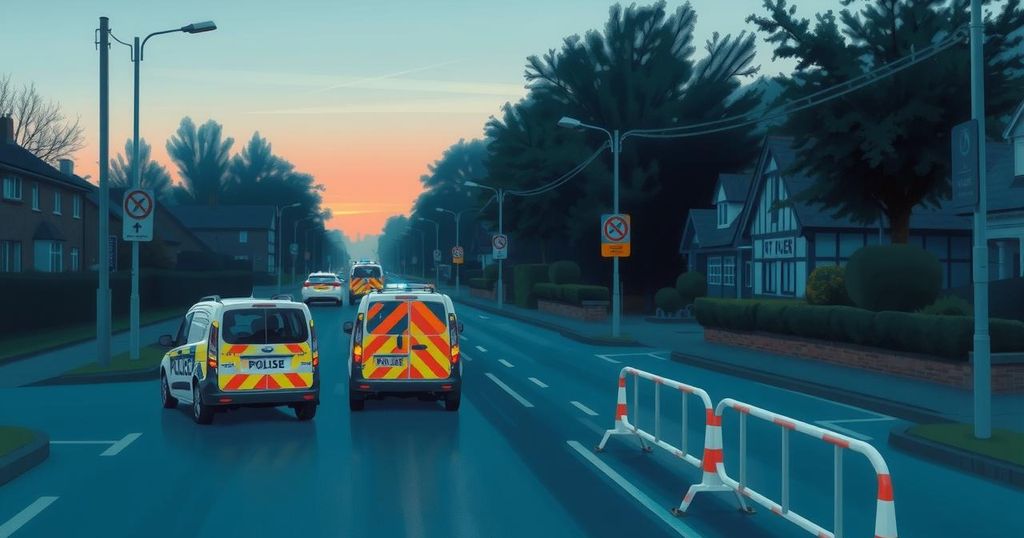Mozambican Police Assert Legitimacy Amidst Allegations of Violence

The Mozambican police claim they use legitimate means to disperse protests, despite civil society allegations of violent repression. The police’s use of live ammunition has resulted in numerous deaths and injuries, contradicting government calls for non-lethal methods. New police leadership urges for dialogue and community engagement, but local enforcement actions suggest a lack of alignment with these directives.
In a recent statement, the spokesperson for the Mozambican police asserted that they employ only legitimate methods to disperse protesting crowds. Police spokesperson Leonel Muchina acknowledged that while injuries and fatalities can occur due to “unforeseen situations,” the police’s responses are justified, particularly when faced with demonstrators engaging in acts of vandalism.
Muchina emphasized that the authorities utilize crowd control strategies, notably tear gas, stating, “in these circumstances, there may be some injuries, in involuntary circumstances.” This assertion comes amid serious allegations from civil society organizations, such as the Human Rights Commission of the Mozambican Bar Association (CDH-OAM), claiming police repression, murder, and torture against citizens protesting electoral outcomes.
The “Decide” Electoral Platform reported alarming statistics, documenting 361 deaths and 619 injuries due to gunfire since the onset of demonstrations on 21 October. Reports indicate that instead of relying solely on non-lethal methods like tear gas, police have frequently resorted to live ammunition, resulting in grave consequences including loss of life.
Tragic events unfolded recently in Matola, where a young man was reportedly killed by a bullet fired by a police officer during a gathering commemorating a newly declared unofficial “heroes day.” Eyewitness accounts indicated that police used tear gas and live fire against youths celebrating peacefully, with one person tragically losing their life after being shot in the head.
Eyewitness testimony suggests the group was not blocking traffic or engaging in vandalism, declaring, “We were just playing music, and cleaning up.” The use of live ammunition by police runs counter to government expectations, particularly after the Minister of Justice, Mateus Saize, asserted that the government advises the use of non-lethal options like rubber bullets instead.
In light of these tensions, General Commander of Police Joaquim Sive encouraged dialogue over violence, urging officers to pursue mediation with protesters rather than aggression. He stated that police should work closely with the community and revive security councils, aiming to facilitate consensus instead of confrontation. However, the local police’s adherence to these directives appears questionable, highlighting a disconnect between leadership and enforcement actions.
The Mozambican police have faced severe criticism for their handling of protests, with allegations of excessive force and the use of live ammunition. Despite government officials advocating for non-lethal crowd control methods and dialogue, incidents of violence against demonstrators continue to escalate. This situation underscores a critical need for reform and adherence to human rights principles within law enforcement practices in Mozambique.
Original Source: clubofmozambique.com







